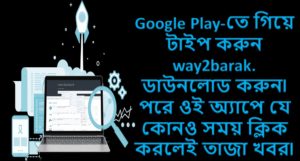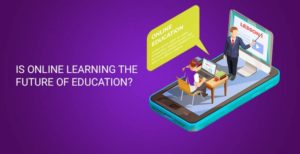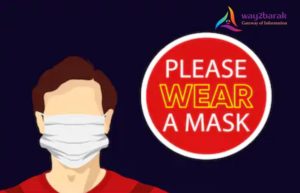AnalyticsBreaking News
Online teaching can only complement learning in schools, colleges & not replace it, writes Sudarshan Gupta


These days when all educational institutions of the country are closed due to coronavirus outbreak, the stress on imparting online education has become a common trend. Universities, colleges and schools across the country have been closed since March 16, when the Centre announced a countrywide classroom shutdown as part of a slew of measures to contain the COVID-19 outbreak.  NCERT, UGC along with education departments of various states are engaged in brainstorming to find a way out of offering a plausible methodology to continue academic activities and also to reopen educational institutions. Suggestions were offered by MHRD and some state governments to reopen schools first with senior students of Class IX to XII maintaining safety norms. However, this idea too seems to have certain serious limitations. The clamour of online teaching or older children coming to school first and not the younger ones should be put to rest. The risk of getting contaminated remains even with senior students. Moreover, for parents, their children always are young irrespective of their numerical age.
NCERT, UGC along with education departments of various states are engaged in brainstorming to find a way out of offering a plausible methodology to continue academic activities and also to reopen educational institutions. Suggestions were offered by MHRD and some state governments to reopen schools first with senior students of Class IX to XII maintaining safety norms. However, this idea too seems to have certain serious limitations. The clamour of online teaching or older children coming to school first and not the younger ones should be put to rest. The risk of getting contaminated remains even with senior students. Moreover, for parents, their children always are young irrespective of their numerical age.  In case of a single student getting contaminated with COVID-19 after coming to school, then all students, teachers and staff of that school will have to be placed under strict quarantine. This will further aggravate problems for the administration. The parents too would lose their confidence. Various complications would thereby come to surface which would be more difficult to handle. A discerning eye in the pages of various social media platforms would be enough to bring forth the anguish of the parents in this regard. There are multiple posts where parents were expressing their decision of not sending their children to school, even if the institutions are reopened. Some even wrote that until a vaccine or medicine of COVID-19 is found, schools should not be reopened.
In case of a single student getting contaminated with COVID-19 after coming to school, then all students, teachers and staff of that school will have to be placed under strict quarantine. This will further aggravate problems for the administration. The parents too would lose their confidence. Various complications would thereby come to surface which would be more difficult to handle. A discerning eye in the pages of various social media platforms would be enough to bring forth the anguish of the parents in this regard. There are multiple posts where parents were expressing their decision of not sending their children to school, even if the institutions are reopened. Some even wrote that until a vaccine or medicine of COVID-19 is found, schools should not be reopened.

None can deny the factor of risk which involves in spreading of coronavirus from schools and colleges. So before reopening educational institutions, parents need to be taken in confidence and they should be explained the risk factors with facts.The apprehension of the parents could not be overruled, but at the same time, another practical aspect also needs to be kept in mind. Can anyone give any certain date for making a vaccine or medicine effective in containing COVID-19? This is perhaps not possible. So, for how long can the educational institutions be kept closed? Probably, a way needs to devised to continue teaching-learning activities amidst this pandemic. Here comes the relevance of e-learning or online mode of learning.  However, if various media reports are to be trusted, than a vaccine to combat COVID-19 will be ready anywhere by May 2021. Till then, we will have to hold on to the fact that “Extraordinary situations require extraordinary solutions.” So atleast for the current academic session , the existing syllabus needs to be trimmed to a considerable extent. Instead of traditional question pattern during examinations, the concept of MCQ with answering facilities in OMR sheet may be explored.
However, if various media reports are to be trusted, than a vaccine to combat COVID-19 will be ready anywhere by May 2021. Till then, we will have to hold on to the fact that “Extraordinary situations require extraordinary solutions.” So atleast for the current academic session , the existing syllabus needs to be trimmed to a considerable extent. Instead of traditional question pattern during examinations, the concept of MCQ with answering facilities in OMR sheet may be explored.  NCERT, AHSEC and various other boards, universities, schools and colleges are now-a-days busy in devising study materials for online teaching at various levels. There is not an iota of doubt as regards the quality of these online contents. But the question which needs to be addressed at this juncture is the outreach of the online mode among the beneficiaries. Are all students able to participate in e-learning? Do all of them have smartphones or laptops or desktops or tabs? Do all students have high speed or good or even proper internet connectivity? Given this pandemic situation followed by lockdown, many parents have lost their jobs. Those who works as daily wage earners are without work for more than 2 months. When they are finding it difficult to manage two square meals a day, it would become really impossible to recharge data in their mobiles for their children to learn online.
NCERT, AHSEC and various other boards, universities, schools and colleges are now-a-days busy in devising study materials for online teaching at various levels. There is not an iota of doubt as regards the quality of these online contents. But the question which needs to be addressed at this juncture is the outreach of the online mode among the beneficiaries. Are all students able to participate in e-learning? Do all of them have smartphones or laptops or desktops or tabs? Do all students have high speed or good or even proper internet connectivity? Given this pandemic situation followed by lockdown, many parents have lost their jobs. Those who works as daily wage earners are without work for more than 2 months. When they are finding it difficult to manage two square meals a day, it would become really impossible to recharge data in their mobiles for their children to learn online.  In an article in a leading web portal, eminent scientist Prof. CNR Rao spoke against introducing online classes for children in view of the COVID-19 induced close-down of schools, underlining the importance of human interface for good communication and inspiring young minds. The Linus Pauling Research Professor said online classes for young children such as KG, first and second grade should be terminated. “I am not an enthusiast about online teaching. We need human interface with students for good communication. That is how young minds can be inspired,” said Prof Rao who was awarded Bharat Ratna in 2014. Prof. Rao made no secret of his displeasure over easing of a slew of restrictions under new guidelines “Unlock 1.0”, indicating these steps may have come early.
In an article in a leading web portal, eminent scientist Prof. CNR Rao spoke against introducing online classes for children in view of the COVID-19 induced close-down of schools, underlining the importance of human interface for good communication and inspiring young minds. The Linus Pauling Research Professor said online classes for young children such as KG, first and second grade should be terminated. “I am not an enthusiast about online teaching. We need human interface with students for good communication. That is how young minds can be inspired,” said Prof Rao who was awarded Bharat Ratna in 2014. Prof. Rao made no secret of his displeasure over easing of a slew of restrictions under new guidelines “Unlock 1.0”, indicating these steps may have come early.  A somewhat similar view was expressed by Prof. Suranjan Das, Vice Chancellor of Jadavpur University, when he said, “E-learning can complement but not replace direct teaching-learning process.” Prof. Das said that it is feared that e-based learning will go against the holistic learning experience which remains the sina qua non for producing creative and discerning citizens. He further went on to say that, “The Indian state is required to make massive investments to make the internet accessible to broader sections of the society and if we go in for e-based learning without this connectivity, we would be putting the cart before the horse.”
A somewhat similar view was expressed by Prof. Suranjan Das, Vice Chancellor of Jadavpur University, when he said, “E-learning can complement but not replace direct teaching-learning process.” Prof. Das said that it is feared that e-based learning will go against the holistic learning experience which remains the sina qua non for producing creative and discerning citizens. He further went on to say that, “The Indian state is required to make massive investments to make the internet accessible to broader sections of the society and if we go in for e-based learning without this connectivity, we would be putting the cart before the horse.”  A Government of India study itself refers to 55,000 villages without mobile phone coverage. while digital literacy in India is hardly 10 percent of the population and only 26 percent of the population has access to internet connectivity in one way or another. In such circumstances, web-based learning will deepen the inequalities in the education system of our country.
A Government of India study itself refers to 55,000 villages without mobile phone coverage. while digital literacy in India is hardly 10 percent of the population and only 26 percent of the population has access to internet connectivity in one way or another. In such circumstances, web-based learning will deepen the inequalities in the education system of our country.
(Sudarshan Gupta is the Head, Department of History, Radha Madhab College, Silchar)





